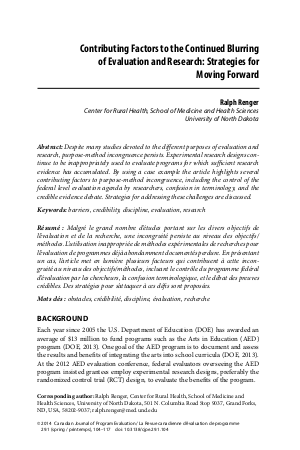
Despite many studies devoted to the diff erent purposes of evaluation and research, purpose-method incongruence persists. Experimental research designs continue to be inappropriately used to evaluate programs for which suffi cient research evidence has accumulated. By using a case example the article highlights several contributing factors to purpose-method incongruence, including the control of the federal level evaluation agenda by researchers, confusion in terminology, and the credible evidence debate, strategies for addressing these challenges are discussed.
